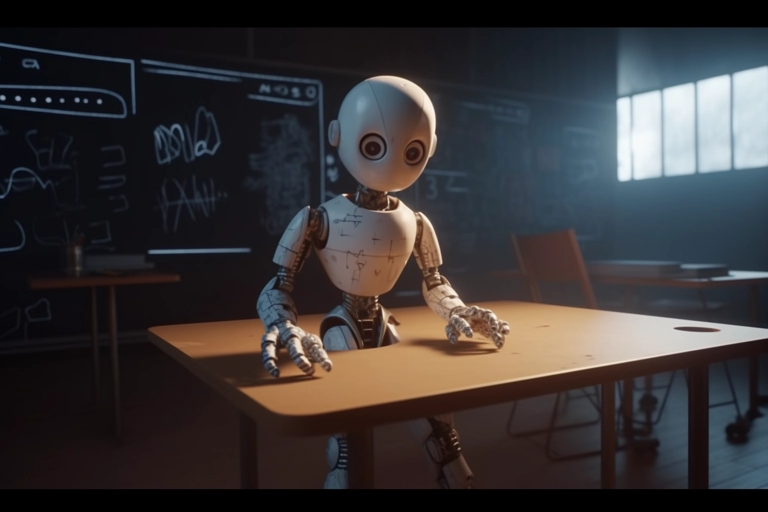Artificial intelligence as a technology of the future: what you need to know about it

Artificial intelligence (AI) is a computer system based on a model of the processes occurring in the human brain. It includes machine vision, speech recognition, language processing, expert systems. AI requires appropriate algorithms to work. And they require special hardware and software to write them. To date, such programming languages as Python, Java have received the greatest application in practice in this area.
Today, the work of artificial intelligence involves the processing of large amounts of data and the performance of their analysis. So you can identify patterns, correlations, which will later be used to predict future states. As an example, a chatbot, having a set of text chats at its disposal, will be able to build a completely logical and natural dialogue with real users. Image recognition tools will be able to not only identify objects, but also describe them based on thousands, if not millions of examples.
Now let's get acquainted with what artificial intelligence is, why it is so promising. Consider also its advantages and disadvantages, the main types. Here are examples of how AI is already being used in practice today. We will also pay a little attention to what is Internet security and how to ensure it when help of mobile proxies.
Learn more about artificial intelligence
Despite the fact that AI is only at the development stage today, it has repeatedly proved its right to exist and even that it is able to solve a number of problems more efficiently than a real person. This is especially true for the same type, repetitive, detail-oriented tasks. An example is the need to fill in the appropriate fields in legal documentation. Another example of the use of artificial intelligence in practice – Uber. Passengers have been connected to specialized software built on machine learning. It predicts when and in which areas people may need taxi services. Accordingly, drivers go there.
Google – one of the most active players in the artificial intelligence market. Machine learning is actively used in the process of analyzing user behavioral factors on the company's services. The information obtained in this way is used to improve the products. Every day, the number of large companies that introduce AI into their professional activities is increasing in order to give a new start to development, to gain a number of advantages over competitors in their market segment.
Three cognitive processes are used to program artificial intelligence:
- Teaching. It involves the collection of information and the formation of a set of rules (algorithms) based on it, which will subsequently become a kind of step-by-step instruction for solving a specific task.
- Reasoning. Artificial intelligence independently chooses an algorithm for solving a particular problem. Selects an option that would achieve the desired result.
- Self-correction. Provides fine-tuning of algorithms and improved accuracy of results.
Strengths and weaknesses of artificial intelligence
Modern deep learning technologies and neural networks are developing very quickly. AI is able to process huge amounts of data as quickly as possible, while making predictions that are more accurate than human results.
Among the main advantages of artificial intelligence, it is worth highlighting:
- performs tasks that require attention to detail effectively;
- reduces the time spent on solving problems with a large amount of initial information;
- constant availability of virtual agents based on artificial intelligence;
- guaranteed stable results.
Among the shortcomings, experts single out the high cost of technology, increased requirements for the technical knowledge of the personnel who will work with it. You also need to understand that AI will only know what it learned in the learning process, it will not be able to generalize tasks in the process of solving them.
What is strong and weak artificial intelligence
There are 2 categories of artificial intelligence:
- Weak, aka limited. This is an AI that is designed and trained to solve a specific problem. Examples of such technology are industrial robots, as well as virtual assistants.
- Strong, aka common. It is an artificial intelligence capable of reproducing the abilities of the human brain. If there is an unfamiliar problem to solve, he will be able to apply logical thinking to find an answer from one area, transferring it to another.
Artificial Intelligence Tools
Today, artificial intelligence is based on a large number of different types of technology. Here are the main solutions:
- Automation. In this area, AI is able to significantly expand the volume of tasks performed and their varieties. Automation of processes with the simultaneous use of robotic technology can replace human labor in many industries, speed up the implementation of many production tasks of enterprises, and improve their quality. Also, artificial intelligence allows you to control processes and instantly respond to their changes.
- Machine learning. It involves teaching a computer to work without prior programming. Machine learning can be performed with the help of a so-called "teacher". In this case, it is supposed to place markers to identify patterns for the purpose of their subsequent application when working with new data sets. Unsupervised machine learning takes place without marks. Here it is supposed to sort by differences and similarities. The most advanced solution— learning with signals from the interaction environment. There are no markers here, but artificial intelligence will receive feedback for each action of the system.
- Machine vision. Technology that allows a machine to "see". It is capable of capturing and analyzing visual data using a camera, A/D converter and signal processing. Machine vision— it is an analogue of human vision, which can be programmed. In practice, it is used in software that can identify signatures, analyze medical pictures, etc.
Main types of artificial intelligence
Today, there are 4 types of artificial intelligence:
- Reactive machines. Such an AI does not have its own memory and depends on a specific task. Cannot use past experience when looking for future solutions. Used when working with simple tasks, including pattern recognition and classification. Also suitable for creating scenarios in which all parameters are known, allowing calculations to be performed almost instantly. But if the scripts contain imperfect data, the system will not work.
- Limited memory. Such artificial intelligence has a memory and can apply past experience in finding future solutions. It can solve complex problems related to classifications, use historical data in forecasting. An example of such AI is unmanned vehicles.
- Theory of consciousness. In relation to artificial intelligence, this term from psychology indicates that the system is endowed with social intelligence and is able to understand emotions. Such AI is able to predict human actions, motives and reasoning. Less examples are needed to teach it. Many experts agree that it is the theory of consciousness that can become the next round in the evolution of artificial intelligence.
- Self-awareness. The AI represented in this category is already endowed with its own consciousness. It can rightfully be called human-level intelligence. In a number of parameters, it bypasses the human intellect. Programs endowed with self-awareness are able to assess their current state. But, today there are no examples of the use of such AI in practice.
Modern practice of using artificial intelligence
Already today, artificial intelligence is actively used in many areas of human life. Here are the most common applications:
- Health care. Here, AI is designed to improve the quality and effectiveness of patient care while minimizing costs. Machine learning allows you to make quick and reliable diagnoses. An example is the IBM Watson technology, which raises natural language and is able to answer the questions that are asked of it. It analyzes patient data, compares it with available data sources, on the basis of which it forms a hypothesis and evaluates its reliability. Other examples of artificial intelligence in the field of healthcare include the use of virtual assistants and chatbots to find the necessary medical information, make an appointment, etc.
- Business. Today, machine learning algorithms are being actively integrated into CRM systems in order to improve customer service. Chatbots are actively used for quick customer service.
- Education. Artificial intelligence will help automate the grading process and help students adapt to work at their own pace. The presence of virtual tutors provides comprehensive support for students who were forced to miss part of the educational process. They will help them keep up with the program being considered at the school.
- Financial and banking sector. Here, artificial intelligence can significantly simplify the process of filing tax returns, help control personal finances. Such applications are able to provide banking advice. As an example, most of Wall Street's real estate bidding today is done by AI.
- Jurisprudence. In this area, artificial intelligence takes over the selection of documents, automation of the same type of labor-intensive processes. This not only saves lawyers time, but also improves customer service.
- Production. Here, artificial intelligence has received massive application in the robotization of production. Small multitasking robots are actively used that can interact with people and perform various tasks in workshops and warehouses.
- Transport. Along with unmanned vehicles, artificial intelligence technology is actively used in the field of transport services. It allows you to manage traffic, improve the safety and efficiency of transportation, and predict flight delays.
- Security. Many modern companies are actively using artificial intelligence in security event management systems. It is able to detect suspicious activity on the network, identify anomalies, and analyze data. AI will notice similarities with malicious codes and warn of danger before the employee identifies it. Today, artificial intelligence has no analogues in the fight against cyber attacks.
A little about Internet safety
Any work on the Internet, and the use of artificial intelligence is no exception, is associated with a number of risks. You can minimize most of them by hiding the real IP-address of your device mobile proxies can provide this in operation. This is an intermediary server that will replace the real user data of your device with its own technical parameters, in particular geolocation and IP -ddress.
But in work it is worth using private servers, as an option from the MobileProxy.Space service. Such mobile proxies will provide complete anonymity and security of the network, reliable protection against hacker attacks and other unauthorized access. By choosing such mobile proxies, you get a private dedicated channel with unlimited traffic, access to almost a million pool of IP-addresses, which you can change automatically or forcibly. Additional benefits of this product also include:
- Effectively circumventing regional blocks, gaining access to resources blocked in your country;
- higher connection speed, which is ensured by the use of high-speed communication channels and data caching;
- simultaneous operation via HTTP(S) and Socks5 protocols, which is implemented by parallel connection;
- the ability to change the geolocation and network operator in the workflow.
Click https://mobileproxy.space/user.html?buyproxy for more details on the features mobile proxies and take advantage of a free two-hour testing.
